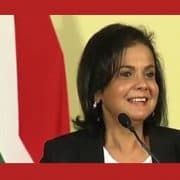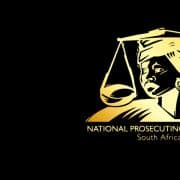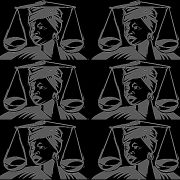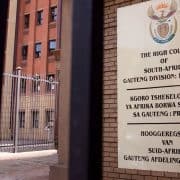|
Getting your Trinity Audio player ready...
|
By Leanne Govindsamy
First published in Business Day
The corruption paralysing South Africa will only be properly dealt with when institutions in all spheres of government — in particular criminal justice institutions — work together, freely and without interference and without favour or prejudice.
Any anti-corruption project in South Africa, therefore, should be first and foremost about supporting and promoting democracy, the independence of constitutional institutions and the rule of law.
The beleaguered and frenetic leadership in key state institutions has reinforced the necessity of rigorous interrogation around decisions to appoint and remove those appointed to leadership positions in institutions meant to promote democracy.
It is within this context that Corruption Watch, Freedom Under Law and the Council for the Advancement of the South African Constitution asked the High Court in Pretoria to review the 2014 decision of President Jacob Zuma to remove Mxolisi Nxasana as national director of public prosecutions (NDPP).
The litigation began in August 2015 and has resulted in real vindication of efforts aimed at protecting and strengthening prosecutorial independence, the cornerstone of the fight against corruption.
Even before the full bench comprising Judge President Dunstan Mlambo, Judge Natvarlal Ranchod and Judge Willem van der Linde ruled that the settlement agreement between Zuma, Nxasana and the minister of justice was unlawful and should be set aside, concessions were made in court on November 22 on the illegality of the settlement agreement.
Court unhappy with delaying tactics
It is disconcerting that Zuma and the other respondents defended their positions in this matter for more than a year before making the concessions.
The court took pains to stress its dissatisfaction with this conduct, referring in the judgment to “the broader pattern of the president’s conduct in litigation, of defending what ultimately turns out — on the president’s own concession — to have been indefensible all along, banking on any advantage that the passage of time may bring.
“This pattern has played out in well-publicised cases in the courts, and would be naïve to ignore. We refer particularly to the Nkandla case and the spy tapes case.”
In assessing the unlawfulness of Zuma’s conduct in relation to the Nxasana settlement, the court considered the state’s delaying tactics and reckless spending of taxpayers’ money on legal costs, which could never be justified. The scathing judgment should signal a clear message to the state attorney’s office — that this conduct will not be tolerated.
The court’s finding that the termination of Nxasana’s appointment was invalid and that he should pay back the R17.3-million settlement amount is another signal to all spheres of government, particularly state-owned enterprises, that unlawful settlements and huge pay-outs will be dealt with severely. Real accountability is being demanded for the wasteful and unlawful expenditure of state resources and erratic decision-making that achieves only political expedience.
Separating the wheat from the chaff
However, the findings that have really captured the public’s imagination in the wake of the judgment relate to National Prosecuting Authority (NPA) head Shaun Abrahams. The court held his appointment was invalid, that the national director of public prosecutions post was now vacant and, importantly, that Deputy President Cyril Ramaphosa had to appoint a new director by February 2018, because Zuma has too great a conflict of interest to carry out that task as he is under threat of prosecution for corruption.
As the court noted, given the Supreme Court’s October 2017 decision in the spy tapes matter, “there is no longer any obstacle in the way of criminal charges proceeding”. We hope, therefore, that any decision to prosecute or not prosecute the president for corruption is taken without any fear, favour or prejudice.
In most quarters, this judgment has been hailed as a real victory for transparency, accountability and protection of constitutional institutions. The independence of South Africa’s judiciary has once again been reaffirmed and the Constitution continues, under strain, to guide a nation, perhaps beyond even the imaginations of its drafters.
As the court has found, “if the office of the NDPP is to stand alone, apart from and independently of the executive, Parliament and the courts, in service of the Constitution and the rule of law, then its independence must be real, and must be supported by a statutory structure that protects the office from outside pressure of any kind”.
While we anticipated the appeal, which has speedily been lodged against this important finding, we also note responses from the ANC Women’s League and the Umkhonto we Sizwe Military Veterans Association — known supporters of the president — decrying the supposed judicial overreach, a lack of justice for the NPA and even a “judicial coup”.
Mention has also been made about the timing of the judgment and that it favours Ramaphosa’s candidacy in the ANC presidential elections. These sentiments are disappointing and dangerous commentary on the actual effect and importance of a judgment aimed at preserving the legitimacy and independence of the NPA.
The courts are not enemies of the state but play a crucial role in preserving democracy. More care should be taken by those who occupy public power to avoid vilifying and undermining the judiciary’s role and the nature of actual work being done to protect our democracy.
Broader consultation needed when making crucial govt appointments
In a statement released on the day the judgment was handed down, the Presidency indicated its intention to appeal, saying, “Together with judges, who likewise are appointed by the president, the national director of public prosecutions plays a vital role in the criminal justice system. Minded by the principle of the separation of powers, constitutional legality and the rule of law, the judgment will be appealed [against].”
Appointing judges is done in consultation with and on advice of the Judicial Service Commission, a broadly representative body, as opposed to the appointment of the national director of public prosecutions or the national police commissioner, which does not have similar requirements.
Perhaps appointments to all constitutional institutions should be done in accordance with the requirements for the appointment of judges, to ensure independence of these institutions.
Civil society and members of the public have an important role to play and need to participate more vigorously in processes of appointment. It is clear that, however incremental, there is positive change that the courts are spearheading within the parameters of South Africa’s constitution and that we could also be a part of through public participation and dialogue.
Corruption Watch, Freedom Under Law and the Council for the Advancement of the South African Constitution will now be applying for portions of the court’s order to be confirmed by the Constitutional Court.
• Govindsamy is head of legal and investigations at Corruption Watch.







